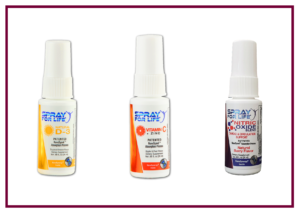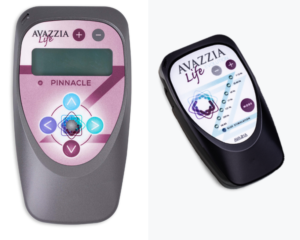
The most important measure you can take this winter in protecting yourself from all forms of illness and disease is to promote a healthy immune system. This is because your immune system functions as a shield; it guards you against bacteria and viruses, keeping you safe and healthy.
With increasing concern growing this year surrounding the common cold, flu, and pandemic variants, we thought it was imperative to support you in protecting your immune system with simple-to-follow instructions that will continue to defend you year-round.
Why is Winter Hard on the Immune System?
According to Harvard University, winter poses a unique threat to our immune systems, and the reasons are myriad. For example, blood pressure increases during the cold winter months, putting us at increased risk for heart strokes, heart attacks, and other cardiovascular events. And don’t forget flu season. The flu virus spreads worldwide from October to May when the air is dry and cold.
And, if you’re not a fan of the shorter days that come with the winter months, you may be discouraged to learn that this lack of light may also be affecting your immune system. When our skin and eyes lack exposure to natural sunlight, we can become deficient in vitamin D, an essential ingredient for robust immune system function.
Add in the stress of the holidays, the ongoing worldwide pandemic, widespread burnout, junk sleep, and stressful working conditions, and you’ve got a near-perfect recipe for an under-functioning immune system.
But don’t worry – there is actually a LOT you can do to keep your immune system humming as it should – and in this blog post, we’re revealing how.
7 Simple Steps for Excellent Immune Function
Before we dive into our advice for protecting the immune system with the five pillars of The Hache Protocol™, we thought it would be helpful to kick things off with seven easy steps anyone can take to ensure proper immune function any time of year:
Seven ways to protect the immune system:
- Don’t smoke
- Drink alcohol in moderation (or eliminate it from your diet entirely)
- Eat a diet high in fruits and vegetables and low in inflammatory ingredients
- Get quality rest each night
- Maintain a healthy body weight
- Participate in gentle exercise regularly
- Wash your hands frequently
These tips may seem like common sense but receiving a reminder of what it takes to achieve optimum immune function never hurts.
How the Immune System and Your Diet are Connected
Proper nutritional habits can reduce your risk of heart disease, diabetes, stroke, some cancers, and osteoporosis, to name a few. Good nutrition also lowers high cholesterol, reduces high blood pressure, improves your overall wellbeing, and boosts your immune system so you can effectively fight off illness and infection.
But what many people don’t realize is that what you put into your body may, in fact, be the cause of your pain and sickness or, at the very least, aggravate preexisting conditions.
What does a healthy diet look like?
You may be wondering, “what does it mean to eat a healthy diet?”A balanced diet includes clean, whole foods and a variety of fruits and vegetables and avoids ingredients that compromise the immune system, such as refined sugar and oils, white flour, and artificial ingredients.
If you have a good base knowledge of what a healthy diet entails, intuitively eating may be an excellent route to staying on track. If you’re new to eating for immune system support or would like to learn more about inflammatory foods, please read the blogs below:
- Raw Food Diet – The Truth Revealed
- The Benefits of Healing Broths
- Low-Inflammation Dessert Recipes
- Holiday Inflammation Flare-Up Foods to Avoid
Immune-Boosting Supplements
If you suspect that you may not be getting the nutrients your body needs to fight off illness and infection, please consider adding the following supplements to your routine today:
- Vitamin D. Vitamin D has been shown to reduce many illnesses’ severity and length, including COVID-19. 10,000 IU of vitamin D a day is what we recommend for home treatment for acute immune system protection. If you find yourself sick, that amount can be increased all the way up to 150,000 IU per day. The best-absorbing type of Vitamin D-3 we have discovered is the Spray For Life ® NanoSyzed Vitamin D-3 spray.
- Vitamin C. We suggest using the Spray for Life® NanoSyzed™ formulation because it provides rapid and more complete absorption and includes zinc, a powerful immune-supporting mineral. 240 mg will be an efficient dosage when using Spray for Life® NanoSyzed™ formulation. When using other forms of vitamin C supplements, we suggest taking up to 4000 mg because your body can’t as readily absorb it.
- Increased protein intake. Eating more protein than sugar will help your body build a proper immune response to invading illness. Sugar is like the gasoline that fuels the fires of inflammation and should be avoided whenever you can – especially refined sugar. You can find adequate protein in foods like organic pasture-raised meat, eggs, cheese, legumes, tofu, and soy products.
- Nitric Oxide. A 2015 scientific review studied the link between nitric oxide and immune response. It was found that nitric oxide could be helpful in understanding the pathogenesis of viral diseases could be helpful in the development of vaccines and other therapeutic strategies. Learn more about the benefits of nitric oxide by reading our blog here or watching the short video below.
The Benefits of Nitric Oxide For Your Health – YouTube
Homeopathic Remedies for Immune Support
Homeopathic medicine can be a great preventative measure when avoiding colds, the flu, and other viruses such as COVID-19. Antimonium Tartaricum 30 CH is a homeopathic medicine that supports respiratory health. You can start taking three tablets once a week to support the lungs and airways as a preventative measure.
Stress and the Immune System
When you are in fight or flight mode, your body can’t effectively repair itself. Stress causes your immune system to take a nosedive, leading to a weakened or inadequate immune response.
If you find yourself living in a constant state of stress, try calming yourself through methods such as yoga, mindfulness, or breathing exercises, and set boundaries on how much of your mental space you are willing to commit to stressful situations or people.
Is Exercise Good for Immune System Support?
Regular, gentle exercise boosts the immune system and keeps your body in ideal shape to fight illness. Whether it be following an online workout, practicing yoga, or going for a walk around your town, it’s essential to keep the blood moving to stay healthy this winter.
- Consider these 5 easy and effective exercises to do outdoors next time you need some fresh air.
- If you have limited mobility or issues with chronic pain, these 4 at-home exercises for chronic pain warriors should suit you well.
How Quality Sleep Protects the Immune System
Getting quality sleep is vital for people suffering from chronic pain and autoimmune illness because it is linked to better less stress, better mental health, and more enjoyment of life. And, as we mentioned in previous blog posts, better sleep equates to less inflammation.
Grounding for Immune System Support
By grounding yourself in nature or “forest bathing,” you can tap into and benefit from the “Earth’s heartbeat,” or the Schumann Resonances. Ranging from 7.83Hz to 33.8Hz, these frequencies keep your cells functioning optimally, balance your body’s electrical potential, and allow your body to repair itself effectively.
Learn more about grounding here:
Microcurrent Immune System Support
Applying specific frequencies of low-level electricity to targeted areas can encourage the body to communicate with the brain at its most fundamental level. By correcting the channels of electrical communication between cells, nerves, and the brain, your body’s bioelectric field is restored, creating a balanced, effective immune system.
If you own a microcurrent device like the Avazzia Life Pinnacle or the Avazzia Life Evolution, you may be missing out on the immune-boosting abilities of microcurrent therapy if you haven’t used our protocols yet.
Learn how to perform our signature Immune protocols here:
How to Protect the Immune System: Free Training Video
Suppose you’d like to learn more about natural immune system support. In that case, please watch the second episode of the Current Medicine Web Series. In it, Dr. Rob Vanbergen and Dr. John Hache discuss the complexities of the immune system and how you can make sure that you balance yours to stay healthy.
And, as a reminder: don’t forget to like and subscribe to the Pain Free For Life YouTube channel and our NEW Podcast to receive a steady stream of health-boots tips and tricks each week!
Current Medicine Web Series: The Immune System – YouTube
Sources cited:
Out in the Cold – Harvard Health Publications – Harvard Health







